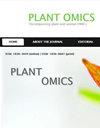不同处理和贮藏条件对大豆种子品质的影响
Q3 Agricultural and Biological Sciences
引用次数: 0
摘要
化学种子处理是一种推荐的技术,可以保护种子免受可能影响其质量的病原体的侵害。本研究的目的是分析不同贮藏温度下不同处理的大豆种子的品质。使用在巴西马托格罗索生产的栽培品种“M 8378 IPRO”的种子。采用完全随机设计的4×3双因子方案。除了对照(未处理的种子)和三种不同的储存温度(13°C、19°C和非控制温度)外,还用三种不同组合的化学品(杀菌剂、杀虫剂、聚合物和干粉)处理种子,重复三次。通过发芽试验(TG)、加速老化试验(AA)、田间出苗试验(FE)、四氮唑试验(TZ)和同工酶分析对品质进行评价。不受控制的贮藏温度对变量发芽、加速老化和田间出苗产生了负面影响。四氮唑活力和活力试验表明,未处理的种子比化学处理的种子具有更好的生理品质。同工酶的表达显示出不同处理之间的差异。即使在种子处理引起的压力下,这种工具对幼苗的初始保护也是非常重要的。本文章由计算机程序翻译,如有差异,请以英文原文为准。
Quality of soybean seeds submitted to different treatments and storage conditions
Chemical seed treatment is a recommended technique to protect seeds from pathogens that can affect their quality. The objective of this work was to analyse the quality of soybean seeds with different treatments under different storage temperatures. Seeds of cultivar ‘M 8378 IPRO’ produced in Mato Grosso, Brazil were used. A completely randomised design was used in a 4 × 3 two-factorial scheme. The seeds were treated with three different combinations of chemicals (fungicides, insecticides, polymer and drying powder) in addition to the control (untreated seeds) combined with three different storage temperatures (13 °C, 19 °C and uncontrolled temperature), with three repetitions. Quality was assessed by the germination test (TG), accelerated aging (AA), field emergence (FE), tetrazolium test (TZ) and isoenzyme analysis. The uncontrolled storage temperature negatively influenced the variables germination, accelerated aging and field emergence. The vigour and viability of the tetrazolium test showed that untreated seeds had better physiological quality than seeds with chemical treatment. The expression of isoenzymes showed a difference between treatments. Even with the stress caused by the seed treatment, this tool is very important for the initial protection of the seedlings.
求助全文
通过发布文献求助,成功后即可免费获取论文全文。
去求助
来源期刊

Plant Omics
生物-植物科学
CiteScore
1.30
自引率
0.00%
发文量
0
审稿时长
6 months
期刊介绍:
Plant OMICS is an international, peer-reviewed publication that gathers and disseminates fundamental and applied knowledge in almost all area of molecular plant and animal biology, particularly OMICS-es including:
Coverage extends to the most corners of plant and animal biology, including molecular biology, genetics, functional and non-functional molecular breeding and physiology, developmental biology, and new technologies such as vaccines. This journal also covers the combination of many areas of molecular plant and animal biology. Plant Omics is also exteremely interested in molecular aspects of stress biology in plants and animals, including molecular physiology.
 求助内容:
求助内容: 应助结果提醒方式:
应助结果提醒方式:


